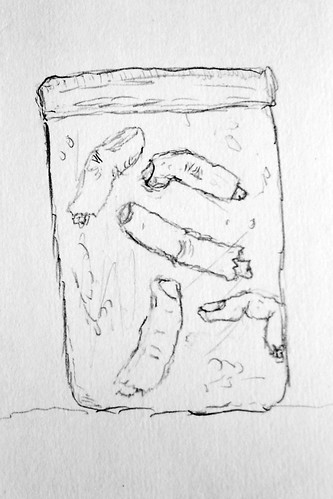It is not just things that carry stories with them. Stories are a kind of thing, too. Stories and objects share something, a patina .I thought I had this clear, two years ago before I started, but I am no longer sure how this works. Perhaps patina is a process of rubbing back so that the essential is revealed, the way that a striated stone tumbled in a river feels irreducible, the way that this netsuke of a fox has become little more than a memory of a nose and a tail. But it also seems additive, in the way that a piece of oak furniture gains over years and years of polishing, and the way the leaves of my medlar shine.The passage could almost serve as a precis of the book, which is nearly as much about de Waal’s quest to learn about his family as it is about what he finds, a balance that wouldn’t work if de Waal weren’t such an interesting, congenial presence with whom to travel. He’s interested in the things we want him to be interested in: the lush details of imperial Vienna; the tiny traces of long-gone relatives that linger in family stories; the elements of his great-great-uncle Charles that went into the making of Proust’s beloved Swann. I can’t imagine any fan of the art, literature, and culture of pre-war Europe not finding something here to cherish.
And then there’s Japan, which, for me, gives the book even more interest. It starts and ends there, the netsuke purchased from there in the early days of the nineteenth-century craze for Japonisme, and it ends there, in cultured evening talks between the college-aged De Waal and his expatriate great-uncle, Iggie. It is in those moments, the interactions with Iggie, that the book comes most fully to life, reminding us of the ways that family relationships can bridge gaps of decades and differences of culture, can offer a comfortable entree for a young person into a world of culture and experience that, associated with true adulthood, has until that moment seemed impossibly remote.
Which brings me to the scene I most want to share. It’s from postwar Japan, the early 1950s--long before de Waal was born--when the country was beginning its remarkably rapid recovery from the war, and forty-something Iggie was just settling in to what would become a lifetime there. De Waal assembles the scene from a clutch of old Kodachrome prints:
Back in the corridor we move through an open doorway, under a Noh mask and into the sitting-room. The ceiling is of slatted wood. All the lamps are on. Objects are displayed on spare, dark, clean-lined Korean and Chinese furniture alongside comfortable low sofas, occasional tables and lamps, and ashtrays and cigarette boxes. A wooden Buddha from Kyoto sits on a Korean chest, a hand raised in blessing.Don’t you want to go to that party? Knot your narrow tie, button up your nondescript black suit, and swelter through a Tokyo summer day in order to step onto that balcony in the night, cold drink in hand, and start counting fireflies?
The bamboo bar holds an impressive quantity of liquor, none of which I can identify. It is a house made for parties. Parties with small children on their knees, and women in kimonos, and presents. Parties with men in dark suits seated round small tables, loquacious with whisky. Parties at New Year with cut boughs of pine trees hanging from the ceiling, and parties under the cherry trees, and once--in a spirit of poetry--a firefly-viewing party.








